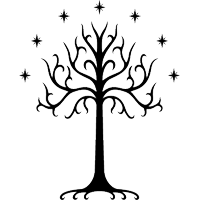Albert Lindemann is perhaps the only Jewish scholar who, unlike most Jewish pundits, acknowledges the reasons why they’ve been so disliked. No ellipsis added between unquoted paragraphs:
Esau’s Tears: Modern Anti-Semitism and the Rise of the Jews (Cambridge University Press, 2009)
Preface
The importance of Jew-hatred in the last hundred years is undeniable, the repercussions appalling. That I have devoted many years of study to anti-Semitism underlines how important I think it has been and is.
Expressing irritation with Jews, as a number of prominent Germans did—and so did prominent figures, including Jews themselves, in nearly every country—is one thing; calling for their systematic murder is quite another. In many accounts (Goldhagen’s is the latest in a long series) such distinctions are blurred; some writers go so far as to condemn the distinctions as morally dubious, thus making any irritation with Jews or criticism of them “anti-Semitic,” a conclusion that takes on extraordinary dimensions when linked to such assertions as “all anti-Semitism is as dangerous as a little bit of cancer.”
I cannot accept such reasoning, which seems to me facile, especially insofar as it implies that Jews, unlike other human groups, cannot provoke legitimate irritation.
Indeed, the opposite position, that Jewish conduct is the main cause for hatred of Jews, has been described by Edward Alexander (disapprovingly) as “an argument of wide and enduring popularity,” which it certainly is. It was even more popular in the nineteenth century when it was almost universally assumed, by both Jews and non-Jews, that Jewish behavior was the all-too-obvious cause of the appearance of modern anti-Semitism.
Chapter 1. Anti-Semitism before the modern period: overview and definition
Esau’s tears: the deepest roots of anti-Semitism
After the fall of the Roman Empire, the Gentile rulers of Jews in Europe generally became classified as “Esau.” Anti-Semites of various stripes have drawn upon the Jacob-Esau tale, that Jacob will always hurt Esau.
The Esau-Jacob story and Jewish commentary on it do, however, suggest a number of provocative points in conceptualizing the nature of anti-Semitism. In a central passage of the Hebrew Bible, Esau’s angry tears were presented as perfectly understandable; they were not the result of some mysterious fantasy about a wholly innocent Jacob.
As a reader of the Hebrew Bible must recognize, brutality was hardly an invention of the Other Nations; the biblical Jews committed, and their spokesmen afterwards glorified, unspeakable bestial acts. The inclination to picture Jews as perennially helpless victims, in no sense responsible for the ills that have affected them, has often been part of an unsophisticated and transparently defensive reflex. The popular writer Howard Fast concludes his book The Jews, The Story of a People, with this remark: “Such despair and agony as the Jewish people had to endure over the past thousand years is the result, not of what they are, but of what the Christian world has inflicted upon them.” This is by no means an isolated or unusual comment. Critics have charged that women, workers, or minorities have been portrayed one-dimensionally by some historians, as utterly helpless, uncomprehending, and pitiful victims of history, in no way responsible for their misfortunes (and to assert that they were responsible would be to commit the cardinal sin of blaming the victim).
The sheer horror of the Holocaust has made it understandably suspect or even unconscionable in the opinion of some observers to suggest that Jews themselves may have had a degree of responsibility for that catastrophe. Study of the sufferings of Jews is now advocated mostly as a way of preventing suffering in the future, largely by exposing the sinful or corrupt nature of Gentile society and its responsibility for Jewish suffering and almost never as a means by which Jews could become aware of their own sins. The following pages will provide evidence that anti-Semites were frequently less simple and occasionally less morally corrupt than they have been generally presented.
The Rise of the Jews
Arthur Koestler has stated the matter with characteristic bluntness: “The Jewish religion, unlike any other, is racially discriminatory, nationally segregative, and socially tension-creating.” The same Ruth Wisse who was earlier quoted as describing anti-Semitism as functioning “independent of its object” observes at the same time, without apparently sensing any contradiction, that “the dynamism of the Jews in the nineteenth and twentieth centuries is almost unparalleled.” The rise of the Jews, notes Paul Johnson, was above all the rise of the Jewish intellectual, whose “shattering importance to modern history” can hardly be exaggerated in nearly all realms but perhaps most strikingly in that of the left-wing and revolutionary politics.
A once despised and legally set-apart group seemed to be prospering more than others, and, more to the point, it seemed to be assuming power over non-Jews. A few scandals or frauds involving Jews, Jewish braggarts, or strutters—and there was no lack of them—set off poisonous spirals of anger, indignation, and envy.
_______________
Excerpted from a longer entry that eventually will contain most of the book’s chapters.
























No comments:
Post a Comment